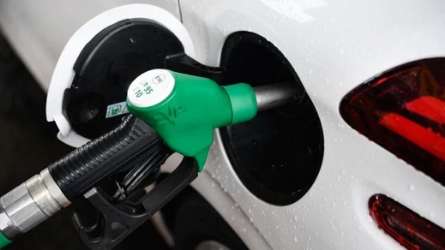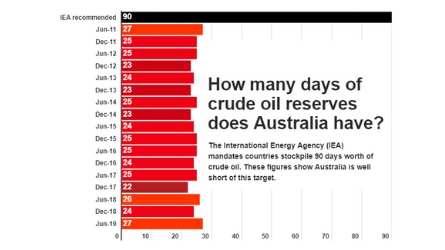The country also has 21 days worth of diesel, 23 days worth of jet fuel and 31 days worth of crude oil in storage, according to the The Department of Environment and Energy’s Liquid Fuel Security Review interim report, released in April.
The figures represent the number of days Australia’s stocks would last under “normal use”, but don’t take into account “fuel that is already in or on the way to fuel stations or products in tanker ships on their way to Australia”, the report says.
“It also excludes crude oil that could be refined into products in Australia. If these were included, our consumption days would be higher,” the report adds.
But retired Air Vice Marshal John Blackburn, a former member of the Royal Australian Air Force who has previously investigated the country’s fuel security, told the ABC that was nowhere near enough.


